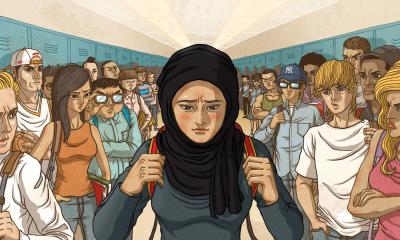Author: Reza Gholami
Affiliation: Sociology of Education, University of Birmingham, Birmingham, UK
Organization/Publisher: Routledge
Date/Place: January 2021/UK
Type of Literature: Research Article
Word Count: 5693
Link: https://www.tandfonline.com/doi/full/10.1080/13613324.2021.1879770
Keywords: Islamophobia, Critical Race Theory, UK’s Muslim, Faith based prejudice, Runnymede Trust Report
Brief:
Islamophobia in Europe manifests through attitudes and behaviors which are then reflected in the policies and practices of organizations and institutions. Unfortunately, this attitude has also affected educational institutions, which has led to devastating effects for Muslim students at UK universities. Reza Gholami uses religion as a framework to study Muslims’ progress in the higher education of the UK. His paper reveals that the students with Muslim background are the lowest attaining group in UK universities. The Muslimness of students is the leading aspect that boosted the awarding gap. This hoary issue affects students from a Black or other Minority Ethnic (BAME) background who study at institutions across the higher education sector. The causal factor is that Muslims are often mistreated, and their proposals are spurned based on their religious identity. Consequently, Muslim students lack a sense of belonging to the university. Gholami states that although Britain has deficiencies in basic religious understanding, the main setback however is the wielding of secularism in social sectors. With the number of referenced discourses that have contributed to strengthening race-based prejudice in higher education, Gholami connects Islamophobia to racism. He recommends that a coherent strategy be devised for all Muslim students regardless of race, domicile, or any other characteristic. In addition to this, Muslims’ special needs and problems should be taken under consideration. Thus, Critical Race Theory can be used to create effective strategies for eliminating the awarding gap.
By: Maryam Khan, CIGA Research Associate




